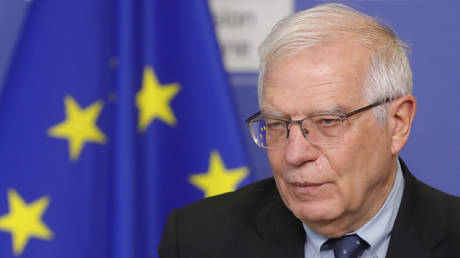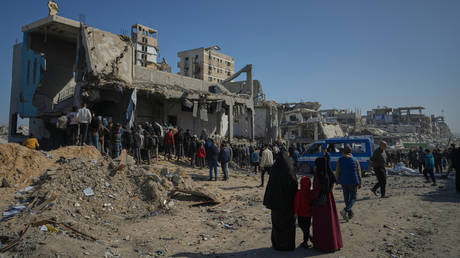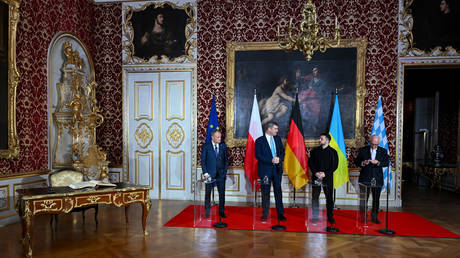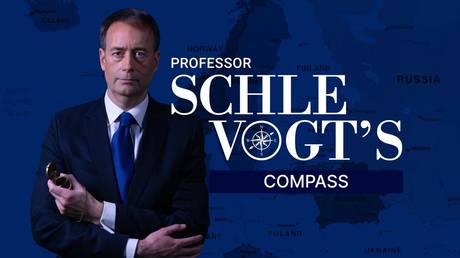
The ongoing conflict in Ukraine risks spilling elsewhere, including into an unspecified “NATO country,” Josep Borrell has claimed
Europe is struggling between its desire to “support” Ukraine amid the ongoing Russian offensive and its fears that the war could spill over into other countries, the EU’s foreign-policy chief Josep Borrell told CNN Turk on the sidelines of the Antalya Diplomacy Forum.
“Everyone is trying to strike a difficult balance. On the one hand, we are trying to support Ukraine and, on the other hand, we are trying to prevent a bigger war,” he said.
The top diplomat also alleged that President Vladimir Putin could “expand his military activities” beyond Ukraine, explaining that “nobody should give excuses” to Russia’s leader to do so. Earlier in the day, Russian Deputy Foreign Minister Sergey Ryabkov cautioned the West against its “mindless handover” of “dangerous arms” to Kiev, warning that his country’s troops could potentially treat convoys carrying them as legitimate military targets.
“It could be against one NATO country or it could be against another,” Borrell continued. “There are serious concerns. Putin will continue to attack and we need to limit the attacks here. We must isolate Russia from the international community, we must support Ukraine.”
He also reiterated the bloc’s support for Ukraine, claiming that the EU has responded “positively” to Kiev’s membership aspirations. Ukraine renewed its push for EU membership amid the conflict, with President Volodymyr Zelensky lodging a formal bid to join the union.
“Yes, we said that Ukraine belongs to the European family. This is an obvious fact, geographically and historically. There are some procedures. We started this process as well,” Borrell stated.
While the bid has been supported by several Eastern European members of the bloc, top EU officials, including Borrell himself, have rejected Kiev’s call for a fast-tracked accession. No fast-track procedure exists and an aspiring member state must meet assorted political and economic conditions to be merely granted an official candidate status.
Russia launched a large-scale offensive against its neighbor in late February, following a seven-year standoff over Ukraine’s failure to implement the terms of the 2014-15 Minsk agreements, and Russia’s eventual recognition of the Donbass republics in Donetsk and Lugansk. The German- and French-brokered protocols had been designed to regularize the status of those regions within the Ukrainian state and to bring the years-long conflict in the country’s east to an end.
Moscow has now demanded that Ukraine officially declare itself a neutral country that will never join the US-led NATO military bloc. Kiev insists the Russian offensive was completely unprovoked and has denied claims it was planning to retake the two republics by force.




